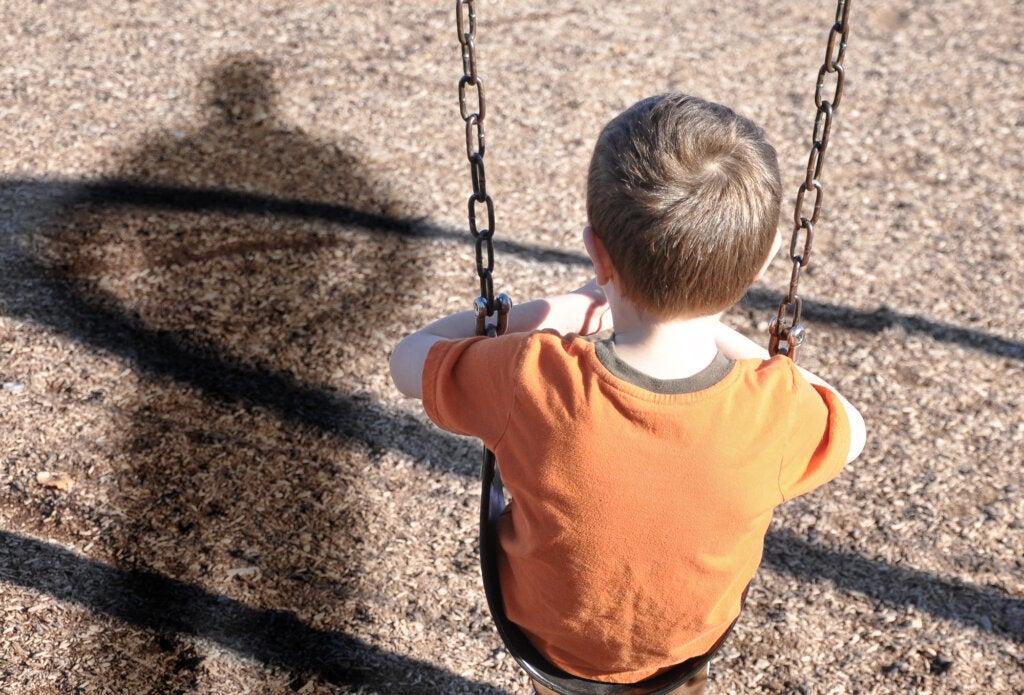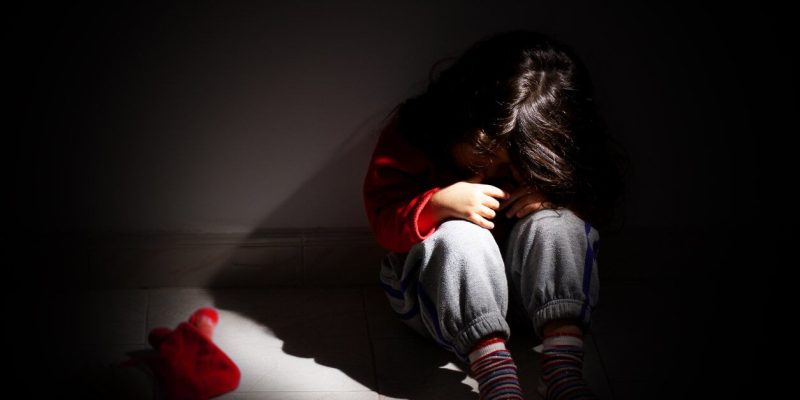Sexual abuse is a problem that should concern us all. We’re going to focus on this issue in children between three and six years of age. This is because, despite the fact that sexual victimization in children can occur at any age, few studies focus specifically on this age range.
There are some valid, effective, and safe treatments for addressing child sexual abuse. For example, trauma-focused cognitive-behavioral therapy. This method allows the child to process their experience of abuse, thus reducing their feelings of discomfort and suffering.
“Child sexual abuse is a problem that concerns us all, and one that we must take steps to prevent and address.”
-Daniel Goleman-
Sexual victimization in children
Early childhood relates to the period from birth to six years (Woodhead, 2009). Unfortunately, there’s little research available regarding sexual abuse during this period. However, certain professionals have learned how to detect the problem, diagnose it, and address it.
A review published in the journal, Psychologist Papers (Pereda, 2023) claims that the family environment plays a crucial mediating role when it comes to sexual abuse. On the other hand, we mustn’t lose sight of the fact that, in up to 70 percent of cases of violence, perpetrators come from the closest environment of the child (Finkelhor et al., 2000).
You might be interested to read:
The Influence of Traumatic Childhood Experiences
Symptoms that may indicate child sexual victimization
The violence of trauma during this period of life can often generate irreparable consequences. The symptoms of sexual victimization in preschoolers are grouped into the following categories (Pereda, 2023):
- Bodily. Vaginal secretions, bruises, sexual diseases, and pain in the abdomen.
- Psychological. Nightmares, behavioral disorders, excessive dependence, sadness, and frequent manifestations of terror.
- Behaviors that gravitate around sex. Sexual games with objects, introducing things into the genitals, or age-inappropriate knowledge about the sexual sphere.
According to the above review, 30 percent of minors subjected to sexual abuse present bodily symptoms, while 24 percent manifest psychological disorders. Moreover, it must be taken into account that the perversion of these acts can affect the psychological development of the child (Pereda, 2023).
It’s been discovered that dissociation is a factor that could hinder a child’s psychological development. In effect, it protects them from the indescribable horror they’ve experienced. This enables them to continue with their daily life as if the abuse never took place. However, it also causes the symptoms of discomfort to remain dormant and go unnoticed (Pareda, 2023).
“Sexual abuse in preschoolers is accompanied by both internalizing and externalizing symptoms of discomfort according to the parents of the victims.”
-Noemí Pereda-
The importance of early intervention
There’s one factor that can act as a lifesaver for children subjected to sexual victimization. It’s the way in which the people around them respond. In fact, when they’re real sources of support, they promote resilience in the child. Consequently, they’re able to face the trauma (Pereda, 2023).
An analysis conducted by the International Journal of Child and Adolescent Resilience claims that, in these helpful conditions, 41.9 percent of sexually victimized minors had the potential to develop high levels of behavioral self-control.
Likewise, according to Hébert et al. (2014), minors in these conditions demonstrated greater proactivity in their behaviors and were more independent. Furthermore, the study reported an increase in the ability of victims to cope with discomfort.
“Child sexual abuse can be especially damaging to children’s brain development and mental health.”
-Bruce Perry-
Trauma-focused cognitive behavioral therapy
Cognitive-behavioral therapy is a treatment that’s usually carried out in groups. Its objective is to intervene in the trauma that child sexual abuse imprints on children between three and six years of age. Among its benefits for the sufferers are those listed below (Pereda, 2023):
- Less anxiety and nightmares.
- Reduction of sexualized behavior.
- Decrease in post-traumatic symptoms.
- Improvements in internalizing and externalizing symptoms.
As a rule, the therapist performs this therapy in a non-directive manner. Despite the therapy being structured in sessions, the minors themselves address the issues to be discussed. The therapist respects the time they need and the way they choose to express themselves.

You might like to read:
The Link Between Child Abuse Syndrome and Impulsivity
The importance of seeking professional help
Sexual victimization of children has the potential to produce terrible consequences. Nightmares and behavioral problems are two such examples.
On the positive side, effective interventions have been developed to address this problem and allow minors to rebuild their future. In addition, the support of parents plays a fundamental role. Finally, seeking professional help will always be favorable for both the child and their family.
The post Childhood Sexual Victimization appeared first on Exploring your mind.



















Comments